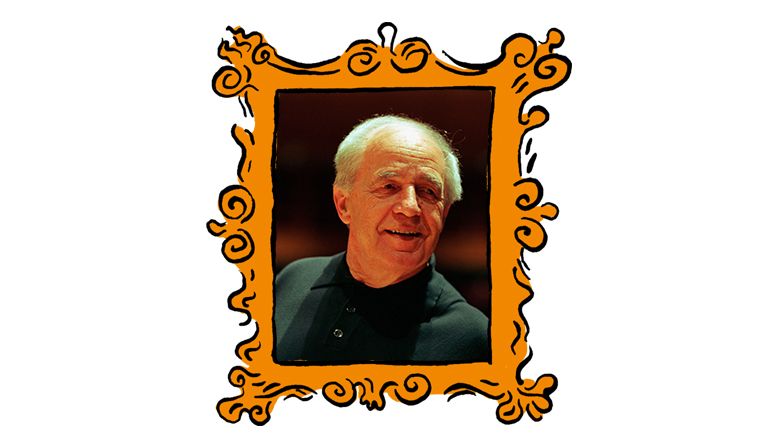At the end of last month, the BBC celebrated the centenary of composer-conductor Pierre Boulez’s birth with a whole day of concerts, films and talks. Boulez served as chief conductor of the BBC Symphony Orchestra between 1971 and 1975, and, as Simon Rattle put it following Boulez’s death in 2016: “he taught us all to listen”. Although some of the music Boulez wanted people to listen to—hardcore modernist composers including Schoenberg, Webern, Messiaen, Varèse and Berio—had been performed in the UK before his arrival, never had such music been performed as expertly and so often. The BBC’s Boulez birthday-bash ended with his most extended—and, no question, greatest—work, Pli selon pli, not so much a “setting” of Mallarmé as an equivalent in sound for the poet’s structural labyrinths and linguistic gymnastics. Boulez recorded it twice with the BBC Symphony Orchestra; it’s their piece and the day couldn’t really have ended any other way.
We need to be honest, though: the cultural desire for musical “progress” that allowed Boulez to redraw the musical map of London during the 1970s simply no longer exists today. Sure, his tenure at the BBC provoked criticism and consternation at the time. But, judging by the press response to his centenary, today’s critics are altogether more resistant—and for different, less edifying reasons.
Consider the Guardian, where it was all doom and gloom. Their reviewer managed to hear the most note-perfect performance of Pli selon pli, conducted by Martyn Brabbins and sung by Anna Dennis, as “lacking shape and drive… a battle to the barline”. To which, I’d ask: does that reviewer really have a readymade analysis of Boulez’s score in their head to compare against a live performance led by Brabbins, a world-expert?
What’s more, a Guardian editorial published on the day of the concert trampled over any joy before a single note had been sounded. “Who do you really want to listen to,” it challenged, “Schubert or Schoenberg?” It then went on to say that Boulez’s “contribution to that bifurcation was unhelpful”. The implication seemed to be that Boulez wanted us to junk all the popular pre-20th century music of Schubert and his ilk so that it could be entirely replaced by the “difficult” modernism of Schoenberg and his ilk.
As reviewing, that’s unforgivable; as an editorial, it’s stupendously thin. Whoever wrote that copy failed to notice how Boulez-the-conductor actually knitted together balanced and thoughtful concert programmes, let alone make any attempt to understand Boulez-the-composer’s work. Nobody, of course, is obliged to enjoy Boulez; but this sort of knee-jerk rejection, this willing his music to fall flat, feels deeply engrained. If a performance of Pli selon pli hasn’t failed, let’s pretend it did anyway—the toxic stench of anti-intellectualism.
Since the BBC Symphony Orchestra’s Pli selon pli, I’ve been listening to Boulez’s three recordings on loop. What treats! This music retrains the ear and encourages fresh modes of listening. His extended paragraphs make you think about time in new ways; his micro-nuances of orchestration sharpen your perception. The idea often put about that he intended such experiences to eradicate all music that had gone before is a misreading that needs to be stamped on.
On a trip to New York in February, during which I heard the New York Philharmonic, I took a photograph of a poster that had advertised a summer season of concerts led by Boulez in 1975: yes, modernists such as Varèse, Bartók, Webern and Ligeti featured, but their was work interwoven ingeniously with music by Berlioz, Mozart, Dvořák, Haydn, Mendelssohn, Rameau, Mahler and—unfortunately for the leader writer at The Guardian—Schubert’s Fifth Symphony (and there’s a complete cycle of Schubert symphonies conducted by Boulez to be found on YouTube).
Radio 3 also used its Boulez retrospective to launch a new 40-week series called 20th Century Radicals—the first episode broadcast last Sunday—in which presenters Kate Molleson and Gillian Moore will scrutinise not one “modernism” but lots of distinct modernisms, all of which aimed to investigate what musical material could be and what it might express. Modernist schools of composition usually provoked schism and conflict. Boulez hated the minimalists who, in turn, hated everything Boulez stood for. To appreciate Pli selon pli, apparently, eliminates any possibility of appreciating the early, equally groundbreaking work of, say, Steve Reich and Philip Glass. But, as listeners, as people who care about music, we can take a more objective view. We can now recognise that such music has more in common than Boulez and Reich would have been comfortable admitting.
In short, it feels like a time for modernism and its fans to hold their collective nerve. Modernist-shaming—the idea that if you advocate for the likes of Boulez, you’re an elitist who wants all music to be one thing—is rampant. At the same time, we’re enveloped by hugely disproportionate claims made for composers—Samuel Coleridge Taylor, Doreen Carwithen, Karl Jenkins—who were/are workmanlike at best and deficient in that vision thing that can make music soar beyond the merely routine.
Marketed as accessible and wholesome, these composers have their audiences—and that’s fine. However, for what it’s worth, my experience of recent concerts devoted to more challenging repertoire is that they’re packed with keen ears making connections from outside classical music, from places such as improvised music, jazz, electronica and rock. So could it be that the “difficult” stuff is—ironically—more of a draw? It all reminds me of Boulez’s comment after he mock-confessed to an interviewer that, yes, contemporary music is for an elite… “but that elite must be as large as possible”.
Modernism is elitist—in a good way
As the composer-conductor Pierre Boulez once quipped, ‘that elite must be as large as possible’. So-called ‘difficult’ music can be the most rewarding of all
April 10, 2025

Pierre Boulez at a rehearsal of works by Alban Berg & Olga Neuwirth with the London Symphony Orchestra at the Barbican Hall in 2000 © Donald Cooper / Alamy








